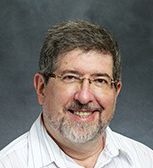What The Haggadah Teaches Us About Disability Inclusion

Image by iStock
It would not be hard to imagine one’s mother exclaiming “Mother’s Day? You should be aware of your mother’s blessings every day of the year!” With Jewish Disability Awareness and Inclusion month (JDAIM) behind us, it is important not to lose momentum. The journey to advance inclusion is an ongoing process. While this quest is universal, Jewish holidays, values and traditions provide teachable moments and lessons to advance inclusion.
What can the Passover to do just this. It is important during this time of questioning and answering to ask ourselves who is not yet included. While this is a great place to start, inclusion, as discussed throughout JDAIM, requires a paradigm shift in attitude and action. We can find lessons embedded in Haggadah that go beyond doing something inclusive on this one night. The goal is not to find additional ways to make one month or one night different from all other nights, but to look for enduring ways to do things differently.
Every Passover, we tell the story of the Jewish people’s exodus from Mitzrayim. The word Mitzrayim has been translated to mean Egypt but as Leslie Koppelman Ross pointed out, it can also mean “the narrow place.” “According to the text on Jewish mysticism, The Zohar,” Koppelman writes, “the name is derived from m’tzarim, meaning “narrow straits” (mi, “from,”tzar, “narrow” or “tight”). When God took us out of Mitzrayim, He extricated us from the place of constricted opportunities, tight control and narrow-mindedness, where movement was severely limited.”
So let us add four additional questions: Where do we find narrow-mindedness in the ways we view individuals with disabilities? How is an applicant with a disability viewed by the HR director and do we advertise our congregational missions to Israel as accessible to all families? When we take a critical look at the spaces where we live, work and play, where do they severely limit and constrict the opportunities of individuals with disabilities? Can our young professional programs be accessed by someone who uses a wheelchair and do we have community holiday celebrations that are sensory-friendly?
Perhaps we can learn about constructing more accessible learning environments from the concept of “universal design,” the idea that we should create buildings, products and environments that are inherently accessible to all. In terms of architecture, universal design mandates curb cuts, automatic doors and ramp entrances. All of these can provide support to individuals who are using a wheelchair, a walker, crutches, pushing a stroller or carrying a heavy load. In a similar way, the universal design of learning is the idea of creating flexible learning environments to meet the needs of all.
The retelling of the Passover exodus story can help us focus on ways we can rebuild our community’s “narrow straits” into more universal and free environments. Many of The Jewish Federation of Greater Washington’s partner agencies are striving to create these more open environments. When Jewish Social Service Agency’s Specialized Employment department meets with individual employers to discuss how an individual with a disability might be the right person for the right job in a specific work environment, constraints begin to be lifted. When the Jewish Council for the Aging provides transportation support to seniors and adults with disabilities, this leads to increased independence and community engagement. And there is a sense of freedom when campers with and without disabilities play together at inclusive day camps such as at Jewish Community Center of Northern Virginia, the Bender Jewish Community Center of Greater Washington, the community service camp of the Edlavitch DCJCC and our community’s overnight camp, Capital Camps.
Passover is a time of questions and answers. The Haggadah included the voices of four children to guide this narrative. These children are labeled as the wise, the wicked, the simple and the one who doesn’t know to ask. Rabbi Miriam T. Spitzer expands our understanding when she explains that while the Haggadah’s introduction of these four children, “k’neged arba banim dibra Torah” is usually translated as, “the Torah alludes to four children,” it could also be rendered as “The Torah speaks against the notion that there are only four stereotypes of children.”
Inclusion goes beyond the first step of making room at the Seder table for the not-yet-invited fifth child. It challenges us to rethink and expand upon our previously narrow definitions. Perhaps the Haggadah is saying that there is no such thing as a purely wise, wicked, simple or silent child. As Rabbi Spitzer points out, the Haggadah may be teaching us that we are more composite people. Universal design of learning likewise incorporates the idea that there is no such thing as an average learner. When we include individuals with disabilities in our schools, we create broad educational environments that meet all needs.
As we gather to celebrate Passover, let’s broaden our understanding of the text we read together. Let’s appreciate the complexities that prove that we can never be defined by a single label. And let’s work together to journey from our limiting environments towards inclusion and freedom.

























